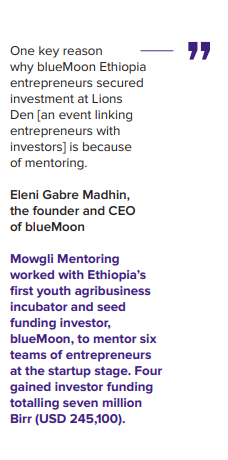Why do so many businesses fail in the first five years of operation?
Why do so many promising businesses stagnate after the initial burst of success?
Why do the few entrepreneurs who reach the heights of success often jeopardise it all through bad decisions?
AtMowgli, we believe the answer lies within the nature of the entrepreneurial mindset and learning process, which need support at the three critical stages of the business lifecycle.
START UP AND PRE-BREAK EVEN PHASE
A startup company exists in a world of uncertainties, with success heavily reliant on factors such as its founder’s confidence, motivation, mindset and resilience. Entrepreneurs struggling to break even in these first few critical years experience pressures, stresses and interferences, including fears, insecurities, limiting beliefs and societal, cultural and gender-based psychological factors. These cannot often be addressed in business mentoring-focused programmes.
70 percent of the entrepreneurs we have worked with are in this ‘Valley of Death’ phase. Our mentors offer them a new perspective, sharing their own experiences in a long-term shoulder-to-shoulder relationship. They support the entrepreneurs to clarify their personal and professional vision, establish their priorities and roadmap, explore their blind spots, identify areas requiring personal development or resources and manage their own learning process.
Having someone with experience, especially in your domain, to talk to in tough situations is really a blessing that is not acquired from the classroom. I would encourage every entrepreneur to engage a mentor, especially in a structured form like Mowgli’s. Kamal-Deen Yakub, Mowgli Mentee, Ghana
GROWTH

The skills and people needed to work on a growing, established business fundamentally differ from those required at start up. The mentor can smooth this transition: they can assist an entrepreneur to recognise and reflect on their strengths and weaknesses, adapt their skills and outlook to the development needs of the business, identify possible limitations that may affect the business, identify risks and opportunities, and consider what other inputs their business will need as it grows.
SUCCESS
When revenues surge, the spotlight is on the entrepreneur and their business. Complacency and boredom, hubris and neglect of themselves, their personal lives and their business can set in. This is often referred to as the ‘crash and burn phase’. With a mentor by their side, entrepreneurs can receive constructive criticism, remain grounded, humble and curious, and ultimately discover their next learning curve.

